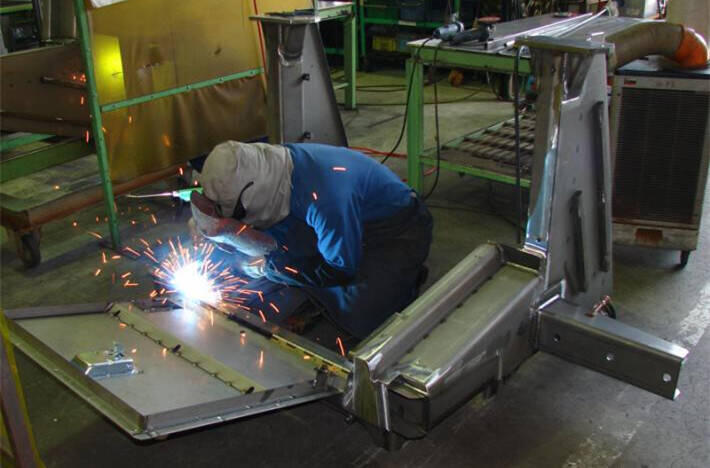Green Revolution: The Role of Sustainable Development and Circular Economy in Sheet Metal Processing and CNC+ View more
Green Revolution: The Role of Sustainable Development and Circular Economy in Sheet Metal Processing and CNC
+ View more
Date:2023-11-16 15:34
Introduction:
In an era where environmental consciousness is paramount, industries are embracing a "Green Revolution" by incorporating sustainable practices. This article delves into the pivotal role of sustainable development and the circular economy in sheet metal processing and CNC (Computer Numerical Control) machining. From resource optimization to waste reduction, we explore how these principles are reshaping manufacturing landscapes and contributing to a more sustainable future.

1. Sustainable Material Selection and Responsible Sourcing:
The journey towards sustainability in sheet metal processing begins with conscious material choices. Manufacturers are increasingly opting for eco-friendly materials, considering factors like recyclability and reduced environmental impact. Responsible sourcing practices ensure that raw materials are obtained ethically, fostering a sustainable supply chain.
2. Energy-Efficient Manufacturing Processes:
Sustainable development in sheet metal processing and CNC involves the implementation of energy-efficient manufacturing processes. From equipment upgrades to optimized workflows, manufacturers are minimizing energy consumption and reducing their carbon footprint. This not only aligns with environmental goals but also contributes to long-term cost savings.
3. Circular Economy Principles in CNC Machining:
The circular economy model aims to minimize waste by promoting the reuse, refurbishment, and recycling of materials. In CNC machining, this translates to the adoption of modular designs and components that can be easily disassembled and repurposed. Manufacturers are embracing the concept of a closed-loop system, where materials circulate within the production cycle, reducing overall waste generation.
4. Waste Reduction and Recycling Strategies:
Sustainable sheet metal processing emphasizes the reduction of waste and the implementation of effective recycling strategies. Scrap metal generated during the manufacturing process is recycled to minimize environmental impact. Additionally, waste reduction programs focus on optimizing material usage and minimizing excess, contributing to both environmental conservation and cost-effectiveness.
5. Life Cycle Assessments for Environmental Impact Analysis:
Manufacturers are increasingly employing life cycle assessments (LCAs) to evaluate the environmental impact of sheet metal processing and CNC machining. These assessments consider the entire life cycle of a product, from raw material extraction to end-of-life disposal. By understanding the environmental footprint, businesses can make informed decisions to further enhance sustainability.
6. Collaborative Supply Chain Initiatives:
Sustainable development in sheet metal processing involves collaborative efforts throughout the supply chain. Manufacturers are engaging with suppliers, customers, and other stakeholders to create a unified approach to sustainability. This includes shared goals for reducing waste, optimizing transportation, and collectively working towards a more sustainable industry.
7. Educating and Engaging the Workforce:
The success of sustainable initiatives relies on a well-informed and engaged workforce. Training programs and awareness campaigns are essential components of fostering a culture of sustainability within the sheet metal processing and CNC machining sectors. Empowered employees play a vital role in implementing and championing green practices.

Conclusion:
As the "Green Revolution" gains momentum, sustainable development and the circular economy are proving to be catalysts for positive change in sheet metal processing and CNC machining. By embracing eco-friendly materials, energy-efficient processes, circular economy principles, and waste reduction strategies, manufacturers are not only meeting environmental responsibilities but also future-proofing their operations in a world increasingly focused on sustainable practices. This paradigm shift signifies a commitment to a greener, more efficient, and economically viable future for the sheet metal processing and CNC industry.
Share to:
Recommend wonderful blog posts

